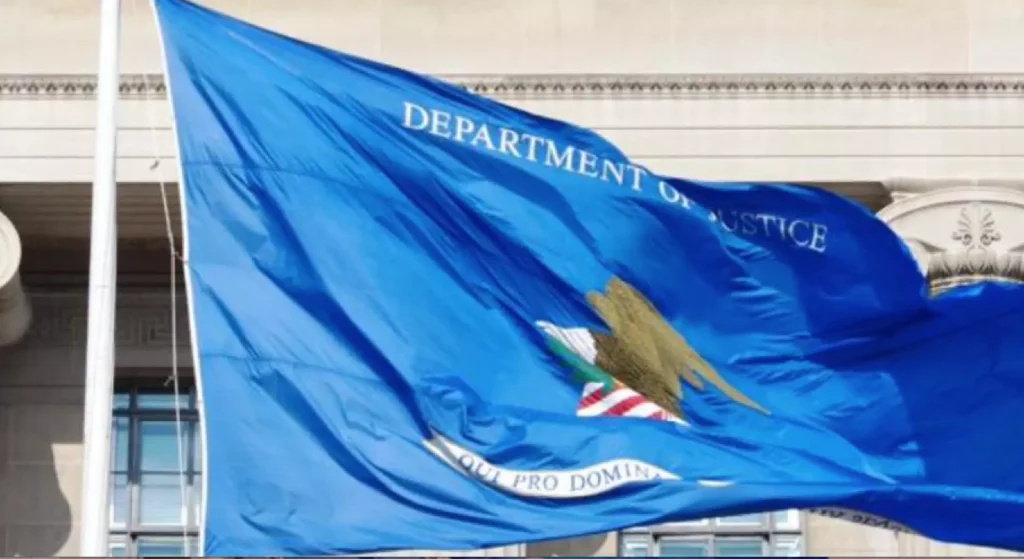A Chinese spy who committed economic espionage on behalf of the government of the People’s Republic of China and tried to steal trade secrets from GE Aviation and other companies was sentenced to 20 years in prison on November 16.
Yanjun Xu, 42, was an agent for the Ministry of State Security (MSS), China’s intelligence agency, and was responsible for coordinating “sophisticated and significant intelligence operations.” Xu was the first Chinese government intelligence officer ever to be extradited to the United States to stand trial for espionage.
Xu was convicted by a federal jury in Cincinnati on November 5, 2021, on all counts: conspiracy to commit economic espionage, conspiracy to commit trade secret theft, attempted economic espionage, and attempted trade secret theft.
He also tried to get employees at a French aircraft engine manufacturing factory to plant malware on the company’s computers to infiltrate and steal technology.
Ji Chaoqun, another spy for China who had been working with Xu and the MSS and who was attending college in Chicago, was arrested and convicted in September. Xu had ordered Chaoqun “to collect biographical information on people to recruit to work with them potentially,” according to federal prosecutors. Chaoqun had applied to join the Army Reserves.

Attorney General Merrick B. Garland said Xu was trying to steal information both inside the U.S. and abroad.
“Today’s sentence demonstrates the seriousness of those crimes and the Justice Department’s determination to investigate and prosecute efforts by the Chinese government, or any foreign power, to threaten our economic and national security.”
Federal prosecutors proved at his trial that Xu tried to steal composite aircraft engine fan technology from Cincinnati-based GE Aviation. Xu tried to lure a GE Aviation employee to China to present a report to a university. He later requested specific technical information from the employee. The unnamed employee was cooperating with GE and the FBI.
Xu then proposed that he and the employee meet in Europe, where Xu could receive more proprietary information. They agreed to meet in Belgium, where authorities arrested Xu and extradited him to the United States.
In documents filed prior to his sentencing, Xu “used aliases, front companies, and false documents,” said Assistant U.S. Attorney Timothy Mangan. “He leveraged human intelligence sources, as well as cyber techniques.”
Related: Stolen stealth fighter: Why China’s J-20 has both US and Russian DNA
China has been spying on the US for decades
The Chinese have made tremendous technological advances in recent years because they have cut out years of research and development and saved billions of dollars by stealing U.S. technology. In this particular case, GE Aviation had designed and built this composite engine fan that no other company in the world could produce.
So, the Chinese decided to steal the U.S. technology so that they could produce their own composite engine fan without all the R&D that GE had to do. But this isn’t an unusual occurrence.
Since 2000, there have been 160 documented cases of Chinese espionage directed at the United States. On top of that, 1,200 cases of intellectual property theft have been leveled by American companies against Chinese firms in courts in both the United States and China.
Seventy-six percent of espionage cases by China against the U.S. have occurred since 2010.
According to the Center for Strategic & International Studies (CSIS) think-tank in these cases:
- 42% of actors were Chinese military or government employees;
- 32% were private Chinese citizens;
- 26% were non-Chinese actors (usually U.S. persons recruited by Chinese officials);
- 34% of incidents sought to acquire military technology;
- 51% of incidents sought to acquire commercial technologies;
- 16% of incidents sought to acquire information on U.S. civilian agencies or politicians;
- 41% of incidents involved cyber espionage, usually by State-affiliated actors.
Steve Balestrieri is a proven military analyst. He served as a US Army Special Forces NCO and Warrant Officer in the 7th Special Forces Group. In addition to writing for Sandboxx.com, he has written for 19fortyfive.com and SOFREP.com; he has covered the NFL for PatsFans.com for over 11 years. His work was regularly featured in the Millbury-Sutton Chronicle and Grafton News newspapers in Massachusetts.
Read more from Sandboxx News
- Europe has kicked out over 400 suspected Russian spies this year alone, British intelligence chief says
- The Russian military is reorganizing to prepare for more Ukrainian counterattacks
- American Spies: How the US collects intelligence around the world
- Can older candidates make it through special operations selection?
- China’s military buildup in the Spratly Islands sparks fears of military confrontation


